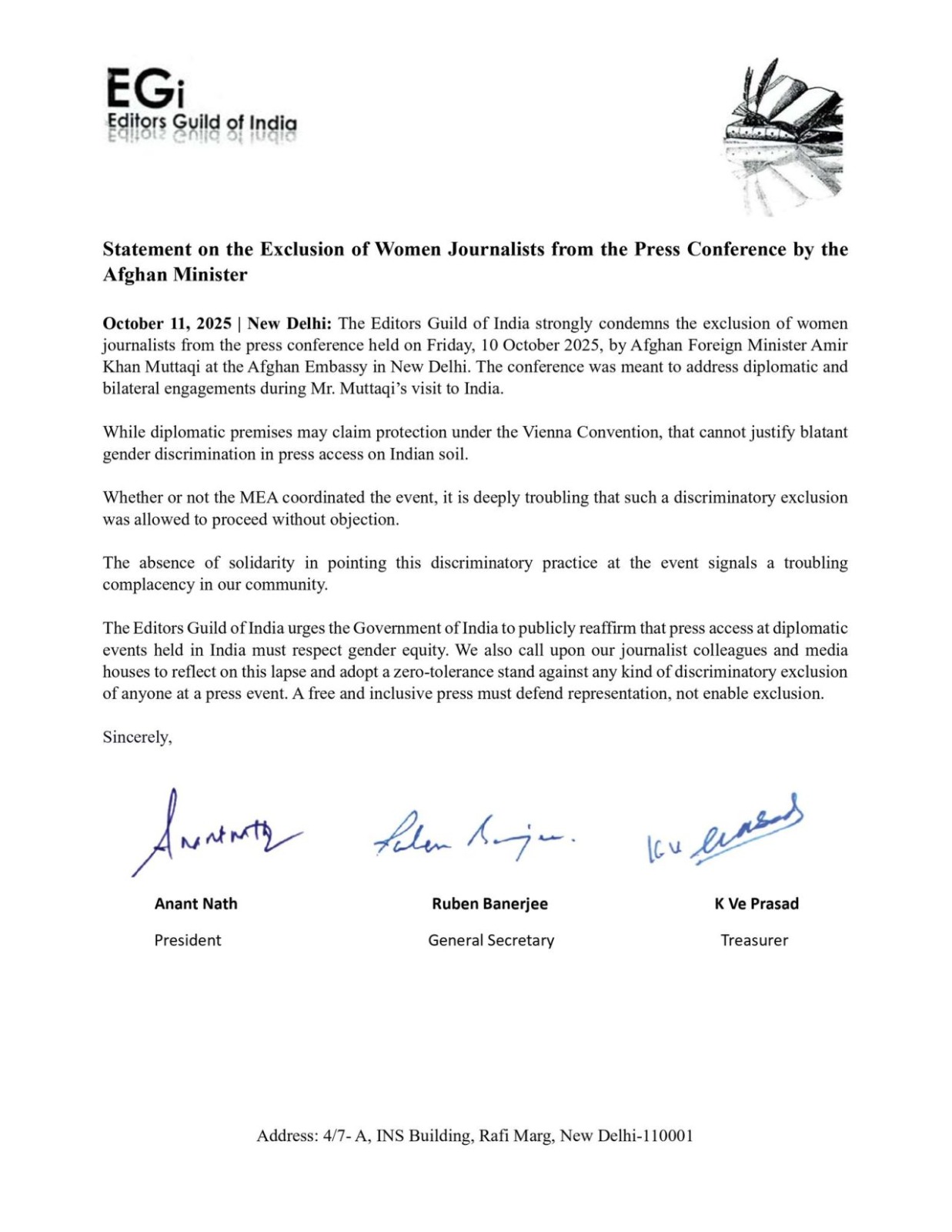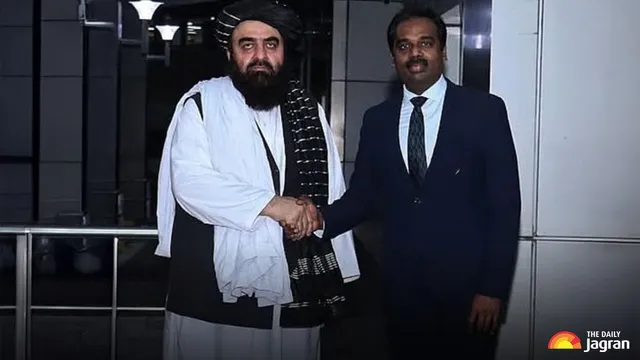- By Soumyaroop Mukherjee
- Sun, 12 Oct 2025 03:05 PM (IST)
- Source:JND
Afghan Foreign Minister Amir Khan Muttaqi, who faced criticism over the exclusion of women journalists from his press conference, has reportedly scheduled another media interaction for Sunday, where he is expected to invite female reporters. Muttaqi, who arrived in New Delhi on Thursday on a week-long visit, faced strong backlash on Friday after reports emerged that women journalists were denied access to his earlier press briefing.
The incident attracted tremendous outrage from the media and rights groups, who accused the Taliban of displaying their discriminatory behaviour in India as well.
ALSO READ: Gorakhpur MP Inaugurates Rs 25 Lakh Chhath Puja Ghat At Sohasa-Dubauli; Muktidham To Follow Soon
Was India Complicit In The Exclusion Of Women Journalists?
In response to the criticism, the Ministry of External Affairs stated on Saturday that it had "no involvement" in the press conference held by the Afghan Foreign Minister in Delhi on Friday.
The BJP responded to Opposition’s criticism by clarifying that the event took place inside the Afghan embassy, where the Indian government has no jurisdiction.

- Rahul Gandhi had earlier accused the BJP government of barring women journalists from the press conference, suggesting that the government was implying women are too weak to represent or challenge it.
Media bodies and press organisations like the Editors Guild of India issued a public statement criticising the move, stating that diplomatic immunity under the Vienna Convention does not justify blatant gender discrimination.
Does India Have A Say?
As the Centre also became a target of criticism, let us understand what falls under the Indian government’s jurisdiction. The Vienna Convention on Diplomatic Relations, drafted in 1961 by the United Nations, is the foundational treaty that governs diplomatic relations, law, privileges and immunities between states:
The Vienna Convention governs embassies and consulates for the smooth conduct of diplomatic relations, ensuring mutual respect for sovereignty.
Article 22 of the Vienna Convention states that diplomatic mission premises are inviolable and cannot be entered by local authorities without the head of mission's consent.
The host country must protect the embassy from intrusion, damage, or any breach of peace and dignity.
Inviolability doesn't mean foreign laws apply inside embassies; it only prevents physical enforcement of local laws without permission.
However, Article 41 of the Vienna Convention, which is the main bone of contention, states that international guests have “to respect the laws and regulations of the receiving State”. This means that India, a gender sensitive country, cannot discriminate against women journalists in allowing entrance in a press conference.

